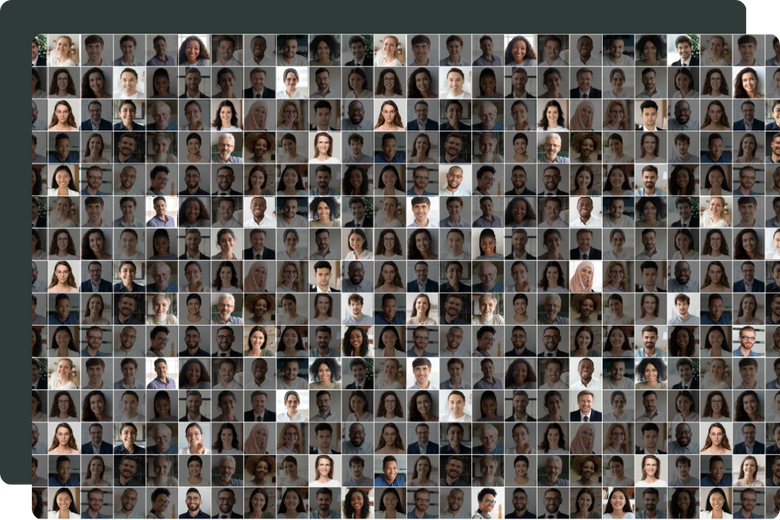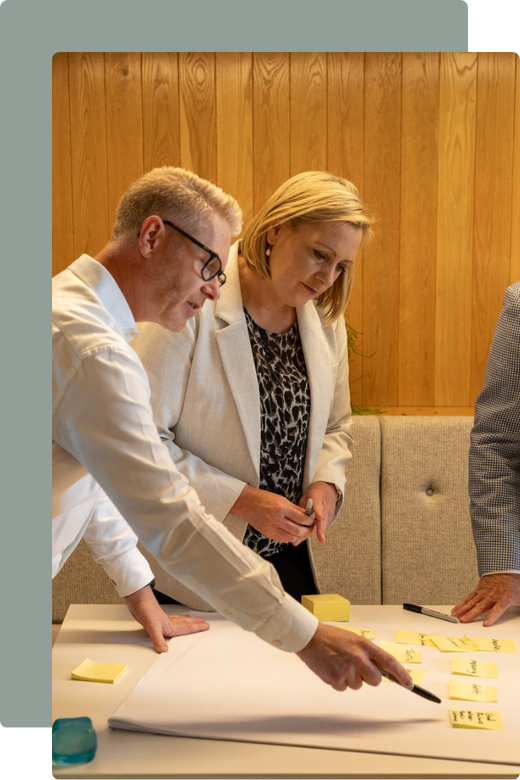Why neurodiversity, why now?
Why individuals and organisations are investing in understanding and harnessing neurodiversity


About neurodiversity
Neurodiversity is the natural variation in how people think, feel, and process information.
It encompasses conditions like autism, ADHD, dyslexia, dyspraxia, and others - representing 15 to 20% of the global population. That's 1 in 5 people!
What science understands about these neurodevelopmental differences has changed significantly in the last 20 years. Society can now appreciate that these differences are not deficits, not disorders, but part of the rich diversity of human cognition, offering both unique challenges and exceptional strengths.
Why it matters
Neurodiversity is a competitive advantage for both individuals and organisations - but only in the right environment.
Embracing different ways of thinking at work isn’t just about the ethically right thing to do - it’s about unlocking potential, fostering innovation, and creating truly thriving, high-performing teams.
With an inclusive culture and strengths-based leadership in the workplace, the evidence is mounting that:
- Neurodivergent professionals contribute unique and highly valuable talents
- These talents align strongly with the skills needed by employers today, and in the future
- Neurodiverse teams deliver greater innovation, productivity, quality, and a reduced risk of 'group think.'
- Leadership skills improve, and employee engagement and retention goes up across the organisation.
- Talent attraction lifts - particularly in the younger generations.
- Employee wellbeing improves

Talent benefits
Neurodivergent people offer unique strengths
While they may also experience challenges, they often have a "spikey profile" with some exceptional areas of talent. These commonly include:
- Creativity & innovation
- Hyperfocus & attention to detail
- Complex problem solving
- Advanced pattern recognition & analytical thinking
- Resilience & adaptability
Source: Praslova (2024), Smith & Kirby (2021)
And the good news? With 15-20% of the population being neurodivergent, we are already likely part of your workforce today, you just might not realise it.





Future talent alignment
Harnessing neurodivergent talent will become increasingly critical in the AI-driven revolution of work.
The most prevalent skills of neurodivergent individuals align strongly with the core skills that employers seek today, and predict they will need in 2030, as reported in the World Economic Forum (2025). The Future of Work Report.
The bottom line for organisations? The time to understand and embrace cognitive differences is now. And for neurodivergent individuals? Time to embrace your differences and lean into your strengths.


Team benefits
Neurodiverse teams create better business outcomes
Management science has known for some time that diverse teams perform better... and we now know that neurodiverse teams create better business outcomes.
Evidence shows that neurodiverse teams - those with range of human brain types - are more innovative and better at solving complex problems than purely neurotypical teams. They are less prone to group-think and are more resilient (Source: Harvard Business Review, 2017, Deloitte 2024).
It's unsurprising when you think about it. But to achieve the benefits requires not just the presence of diversity, but also inclusive, strengths-based leadership.
Wider benefits
Inclusive, strengths-based workplaces benefit everyone
Not only is inclusion ethically the right thing to do, team science shows that the psychological safety created in inclusive workplaces increases team trust, retention, and collaboration (Source: Edmonson, 1999).
Additionally, humans are known to perform better when they focus energy on mastering their strengths, over addressing any weaknesses. Utilising strengths-based leadership for all team members leads to higher engagement & productivity (Source: Rath & Conchie, 2008; Gallup, 2016).


Challenges
However, many workplaces are not designed to enable neurodiverse talents to shine
This is due to environments and ways of working that just aren’t designed for neurodivergent individuals. They are designed for conformity and efficiency, over individualism and innovation.
Neurodivergent individuals often face barriers that hinder their potential at work, and impact business outcomes and employee wellbeing.
Barriers such as:
- Lack of awareness and understanding
- Fear of disclosure to communicate needs
- Communication style differences
- Team work practices that don't work for their brain
- Competency frameworks that don't account for "spikey" profiles
- Unconscious bias in hiring and management
- Inflexible employer policies
- Highly sensory work environments
- Workplace social norms
- Lack of minor accommodations needed
Source: Smith & Kirby (2021), Praslova (2024)
Challenges
Many teams and managers struggle to fully utilise the strengths of diverse thinking styles:
67%
of neurodivergent employees
think their talents are not used effectively at work
Source: Almouth & Doyle, 2024
83%
of NZ workers
think their leaders are not equipped
to deal with a neurodiverse workforce
Source: Diversity Works NZ, 2019

The solution
To harness the benefits of neurodiversity, inclusive management and leadership approaches are required, along with greater self-understanding for individuals, and a focus on leveraging strengths.
That's where Human Fabric comes in - we understand neurodiversity and the science of individual and team performance. We provide courses, coaching, and consulting to help individuals and organisations to thrive.
